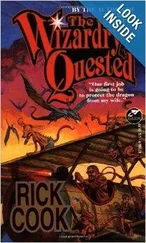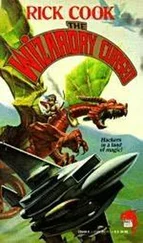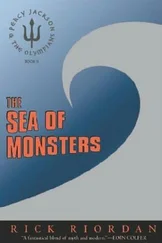Rick Boyer - The Penny Ferry
Здесь есть возможность читать онлайн «Rick Boyer - The Penny Ferry» весь текст электронной книги совершенно бесплатно (целиком полную версию без сокращений). В некоторых случаях можно слушать аудио, скачать через торрент в формате fb2 и присутствует краткое содержание. Жанр: Классический детектив, на английском языке. Описание произведения, (предисловие) а так же отзывы посетителей доступны на портале библиотеки ЛибКат.
- Название:The Penny Ferry
- Автор:
- Жанр:
- Год:неизвестен
- ISBN:нет данных
- Рейтинг книги:5 / 5. Голосов: 1
-
Избранное:Добавить в избранное
- Отзывы:
-
Ваша оценка:
- 100
- 1
- 2
- 3
- 4
- 5
The Penny Ferry: краткое содержание, описание и аннотация
Предлагаем к чтению аннотацию, описание, краткое содержание или предисловие (зависит от того, что написал сам автор книги «The Penny Ferry»). Если вы не нашли необходимую информацию о книге — напишите в комментариях, мы постараемся отыскать её.
The Penny Ferry — читать онлайн бесплатно полную книгу (весь текст) целиком
Ниже представлен текст книги, разбитый по страницам. Система сохранения места последней прочитанной страницы, позволяет с удобством читать онлайн бесплатно книгу «The Penny Ferry», без необходимости каждый раз заново искать на чём Вы остановились. Поставьте закладку, и сможете в любой момент перейти на страницу, на которой закончили чтение.
Интервал:
Закладка:
Mary was in her atelier firing pots. She was hovering near a brick beehive structure in the center of the large workroom, wearing old stained overalls, welder's gloves, and dark goggles. She was looking in through the kiln peephole, and a bright circle of orange light was flickering on her face. A blast-furnace roar came from the kiln, which was fired by the bottled gas in big steel tanks outside. I shook her arm and she removed the goggles.
"Baby brother's here."
"Joe's here: it must be Saturday. It's Saturday? Oh jeez Charlie, and I haven't even thought about supper yet."
"Better start thinking; you know his delicate appetite."
We walked back to the porch. On the way Mary doffed her baggy overalls, which left her in jeans and a cotton blouse. The cassette deck was now playing Bessie Smith singing "Merry Christmas Blues" with James P. Johnson backing her up on the piano. No trills and frills,. just solid stomping chords to accompany that legendary voice that never sang a note without bending it.
"I can't get Johnny at the Lucky Seven," said Joe.
"What's the Lucky Seven?"
"A bar up in Lowell where Johnny hangs out on weekends. He doesn't go there to drink, just to visit with the neighborhood regulars. Whenever I've gotten in touch with him before, I've reached him either at home or at the Lucky Seven."
"Well, if and when you get him ask him about my package from the lab, will you?"
A new number came over the tape: Art Tatum riffling through "Cotton Club Stomp." It was a toe-tapper. Tatum was going through the piece with that pyrotechnic, no-holds-barred style of his that put his lingers all over the keyboard. He was everywhere at once, making all other piano players, past, present, and future, seem like they've got triple arthritis. The sound was so spellbinding that Joe stopped and listened.
"Hey that's great. Who is that guy?"
"That guy was Art Tatum."
"Wow! Never heard of him."
"That was the problem; not nearly enough people ever did. He died broke."
Like so many unrecognized geniuses in the arts, Tatum drank himself to death before he'd even peaked. Sic transit gloria mundi, as they say. "Any, more thoughts on dinner?" I asked Mary.
"No. Gee I really don't feel much like cooking, Charlie. I've been firing stuff all day and I'm hot and pooped. Don't you guys think it's hot for early June?"
"Yeah," said her brother, who placed himself directly beneath the whirling blades of the ceiling fan. Mary seemed suddenly to be aware of his presence and went over and kissed him. She almost took her skin off in the process.
"Why didn't you shave? You look awful."
"Got up late. I was going to shave here." He hesitated a second before adding, "Uh… you know how I sometimes stay for supper?"
"Sometimes?"
He gave me a hurt look, then turned back to his sister.
"We could go out to eat, or… or… I could make my veal and eggplant parmigiana-"
This suggestion sent my salivary glands into a brief grand mal seizure.
"Well why didn't you say so? Care for another drink?"
"What made me think of it was thinking about finding Johnny Robinson up in Lowell. There's a great little meat market up there. Not as good as Toscana's, but still great. They slice the veal right off the carcass. Doc, if you really need that thingamajig, I'm pretty sure I could track Johnny down for you. Then we get the meat and eggplant and head back here. Mary, you can fire your pots; Doc, you can relax- I'll do it all."
Well, that settled it. Mary wanted to come along, so the three of us got into Joe's cruiser and headed up Route 3 to Lowell, about twenty-five minutes away."
"And you really think we can track down Johnny? It would be great if I could get that anterior bridge for Tom this weekend," I said, watching Mary fiddle with the dials on Joe's two-way radio.
"No guarantees. But I've known and worked with Johnny for years. So have most of the other cops. His routine doesn't vary much. He's got no family and sticks pretty close to his old neighborhood where he grew up. I've got a hunch if he's up there, we'll find him."
Lowell is not pretty; but it wasn't designed for aesthetics. Like the other towns along the Merrimack River (Lawrence, Nashua, and Manchester), it was laid out in the early part of the last century to see how many big buildings could be squeezed along the source of water power and barge traffic. Then a lot of effort was expended to see how much machinery each building could hold: looms, carding machines, spinning machines, and finishing machines, and how many immigrant workers- of all ages and sexes- could tend these machines for the maximum number of hours on scant wages without falling down and dying of exhaustion, hunger, disease, or grievous injury.
This cruel experiment in Social Darwinism lasted roughly from the 1830s until the First World War. During its duration a few families and corporations made enormous fortunes, and many thousands of new Americans were chewed up and spit out by these gargantuan mill complexes. Then in the twentieth century, at an ever-increasing pace, the industries left for other places where they could find other people to tend the machines for less money and so do the whole ghastly thing all over again.
For all of its freedom and efficiency, capitalism can be a nightstalker. A benthic fish with gaping jaws and snaggle teeth. A jabberwock. Looking into these old buildings can be enough to turn a hardened Republican into a trade unionist. If you ever get a glimpse of these mills inaction (some of them are still working in these New England towns), it's a spectacle you won't soon forget. As you leave your car, even a block from the building, you can hear the giant locomotive thump of the looms. The walls of the mills are thick masonry, the windows shut or boarded, but the sound comes through: a monstrous syncopated two-stroke thumping of the swinging loom arms and frames. It is a pulsing mechanical heart that shakes the old wooden steps as you climb inside. Then go through two or three more doors and you see the huge interior halls with rows and rows of big metal machines, with racks of bobbins twirling off thread like fishing reels. And on the far side spills out cloth, inch by inch, made in thunder. The women who work here wear ear protectors, but they're deaf anyway.
You shout and cannot hear yourself. The women walk to and fro on the old wooden floors, which are soaked with oozing oil and clotted with fibers. The machines are fuzzy-soft with grease-soaked lint. The floor shakes and trembles underfoot with the swinging metal and spinning flywheels. Sometimes even the old endless drive belts of wide leather remain overhead shrieking on the wooden drums. Perhaps the most depressing thing is that the women don't complain, don't plan to quit and move on to something else. They just serve out their time here on the gummy wooden floors, ears protected against the clank and thump, but already deaf.
And this scene makes you realize that there are two New Englands. There's the one with kids dressed in blazers and madras blouses strolling on green lawns surrounded by ivy-covered walls, and there's this one trying to prop it all up. This one made of veiny-armed, pocked-faced kids in factories, of frowzy old ladies in cotton print dresses and torn stockings worn over purplish puckery legs, tending the machines in the din.
We wended our way along the twisting streets to an area near the river and the General Electric wire and cable plant. A little side street off Broadway was lined with two-family houses. The area was green and offered a nice view of the Merrimack River. The university was within walking distance too. This was a nice section of town; no wonder that Johnny Robinson had elected to stay here and commute into Boston and Cambridge. Joe pulled up in front of a gray house. It was sided with asbestos shingles and had white trim. It was well maintained. There was a wide stairway up to the open front porch. But Joe took us to a roofed side stairway that snaked up the far side of the house and led to a door on the second story. He rang the bell, waited, and knocked. There was no answer. We went downstairs to ask the neighbors, but nobody was home.
Читать дальшеИнтервал:
Закладка:
Похожие книги на «The Penny Ferry»
Представляем Вашему вниманию похожие книги на «The Penny Ferry» списком для выбора. Мы отобрали схожую по названию и смыслу литературу в надежде предоставить читателям больше вариантов отыскать новые, интересные, ещё непрочитанные произведения.
Обсуждение, отзывы о книге «The Penny Ferry» и просто собственные мнения читателей. Оставьте ваши комментарии, напишите, что Вы думаете о произведении, его смысле или главных героях. Укажите что конкретно понравилось, а что нет, и почему Вы так считаете.











